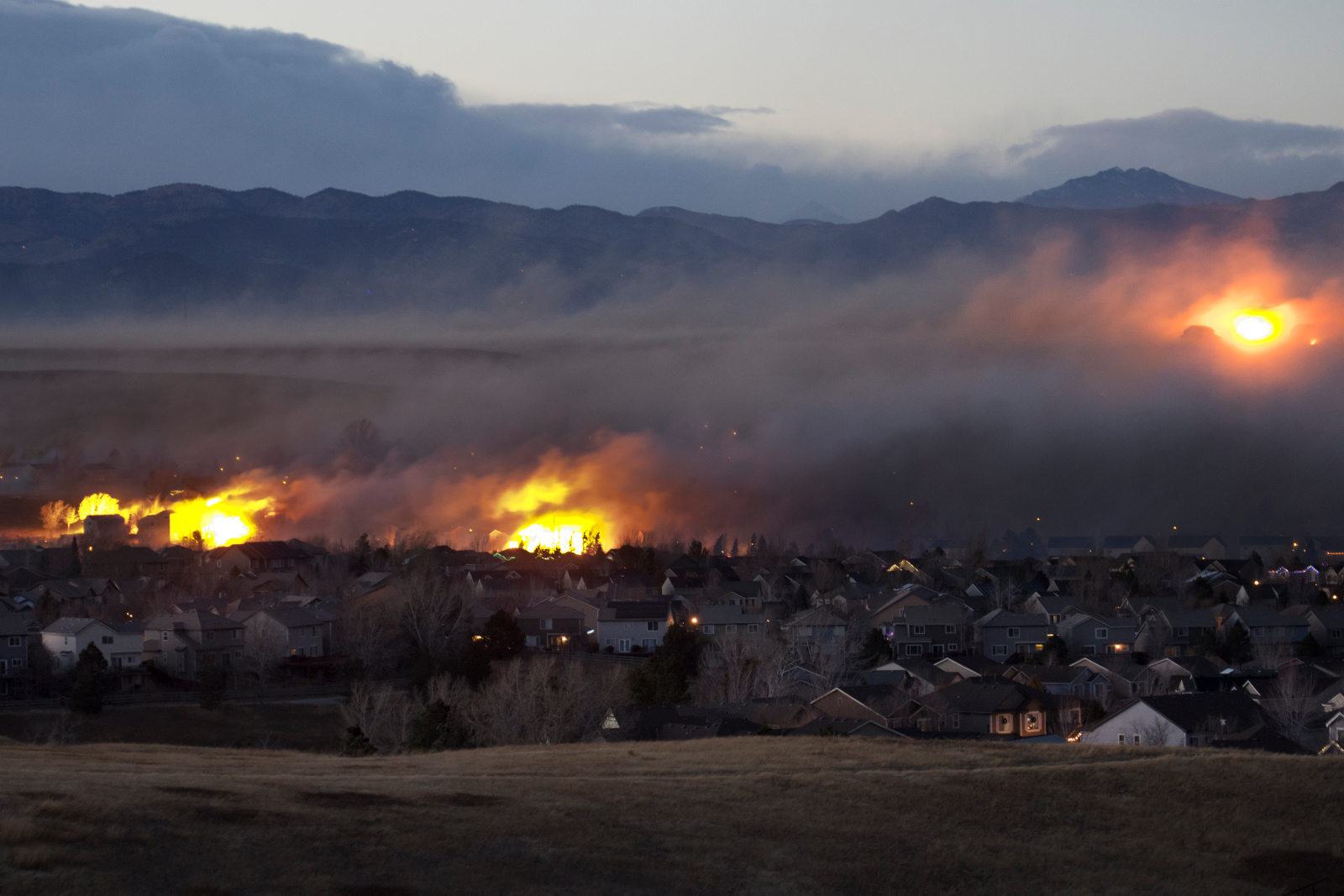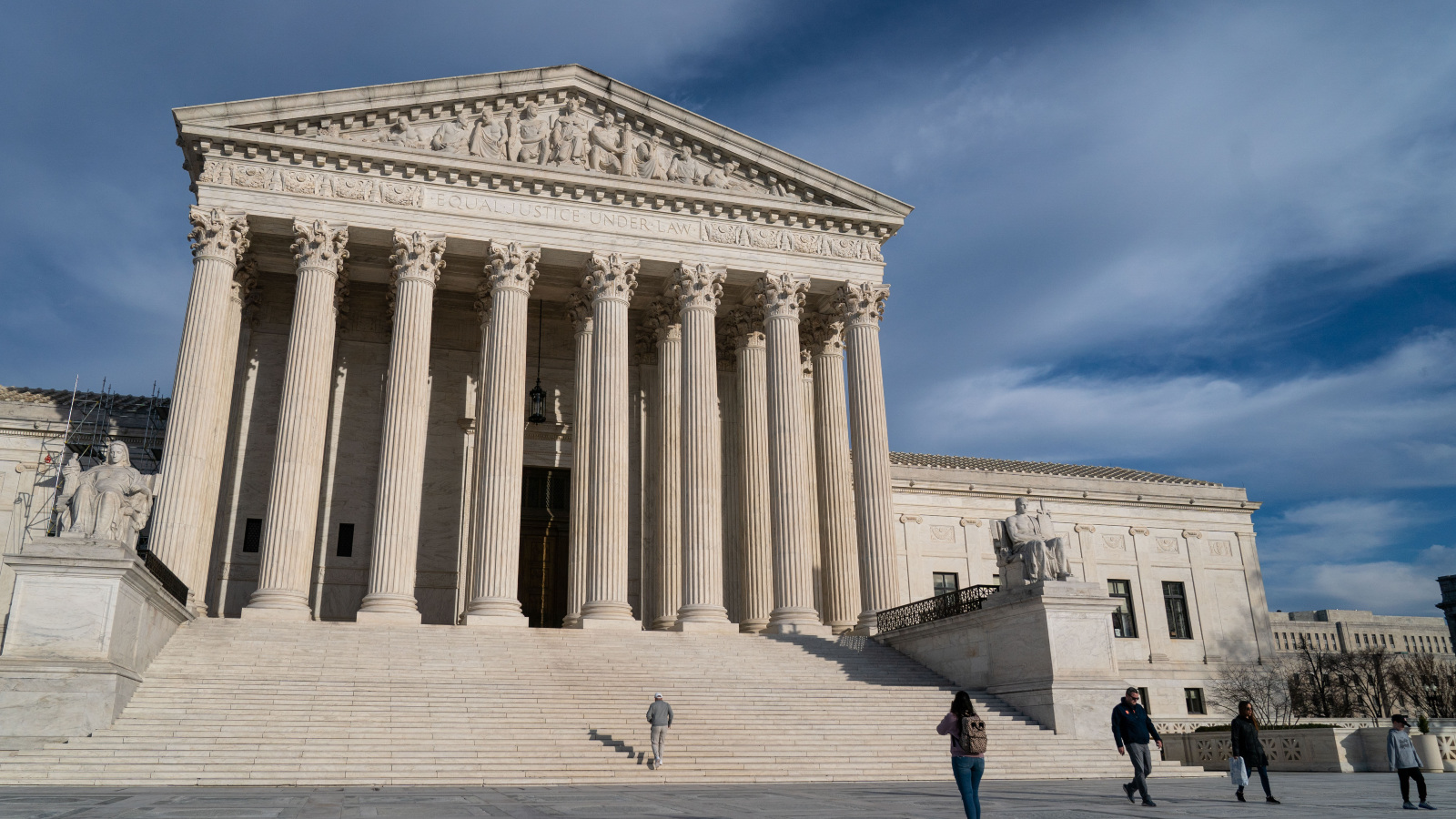After half a year of suspense, the Biden administration is urging the Supreme Court to deny Big Oil’s petition to hear a high-profile case, arguing that climate lawsuits should stay in state courts.
The Department of Justice’s solicitor general released a legal brief last week that pertains to a lawsuit filed by the city and county of Boulder, along with San Miguel County, seeking millions of dollars from oil companies to update their infrastructure to deal with the impacts of climate change. The governments argue that Suncor Energy and ExxonMobil violated the state’s consumer protection laws by producing and selling fossil fuels in Colorado despite knowing that using their products would lead to more dangerous heat waves, wildfires, and floods.
Last February, a federal appeals court sent the case back to state court. After that, Suncor and Exxon petitioned the Supreme Court to grant “cert,” or hear the case, hoping to reverse that ruling. Oil companies have argued that the lawsuit isn’t really about deceptive marketing, but the large-scale problem of climate change, a question that should be handled by federal courts — historically a more corporation-friendly venue. The Supreme Court asked the solicitor general for guidance on the case in October, a sign that the justices were very interested in it.
The case promises to be a turning point for lawsuits that aim to put fossil fuel companies on trial for deceiving the public.
In the brief that came out this week, “the DOJ resoundingly rejects every single one of the arguments that Suncor and Exxon made in support of their petition for review,” said Karen Sokol, a law professor at Loyola University in New Orleans. Judges across the political spectrum have consistently ruled against fossil fuel companies’ argument that these cases should be heard in federal courts. “We not only have five federal appellate courts, we have an excellent solicitor general’s brief making a very strong case that the cert petition is simply ridiculous,” Sokol said.
Cities and counties in California started the trend of suing oil companies for deceptive marketing in 2017. The move followed investigations showing that ExxonMobil had known about the dangers of burning fossil fuels since 1977, but publicly sowed confusion about climate science and blocked legislation to control carbon emissions. Cities and states soon launched about 20 similar lawsuits across the country. But not a single one of them has made it to trial. For half a decade, they have traveled back and forth between state and federal courts, with oil companies maneuvering to prevent them from moving forward.
If the Supreme Court declines to hear the Colorado case, it could unleash these lawsuits, allowing them to finally proceed to trial. Juries could be presented with a decades-long trail of evidence that details how fossil fuel companies deceived the public about climate change.
“The Boulder community is already feeling the effects of the climate crisis,” said Aaron Brockett, the mayor of Boulder, in a statement. “Fires, floods, and extreme weather not only pose threats to our community, but they are also very costly to taxpayers. The companies responsible for these costs must pay.”

But Sokol is concerned that the Supreme Court wanted the solicitor general’s advice on the Boulder case — a sign that the bench, which currently leans conservative, thinks the industry’s argument is worthy of serious consideration. “If this were a different majority, I don’t think the solicitor general would have even been asked, to be honest,” Sokol said. She expects that the Supreme Court might convene another conference on the case in light of the new brief.
While the solicitor general has historically been given a lot of deference, history may not tell us much about what this Supreme Court will do next, Sokol said. She said she wouldn’t be surprised if the court decided to take up the case against the DOJ’s advice. The majority would almost certainly rule in favor of oil companies, she said, dampening climate court cases around the country. The court indicated that it was friendly toward the industry last year when it handed a victory to fossil fuel companies in a climate lawsuit brought against them by Baltimore over an alleged violation of Maryland’s Consumer Protection Act, forcing these kinds of cases to step through even more hoops.
If the Supreme Court ruled in favor of oil companies, attention on climate lawsuits would likely turn to other legal strategies. In Puerto Rico, for example, towns are taking a totally novel approach, accusing Chevron, Exxon, Shell, and other companies of not just knowing about the risks of climate change, but colluding to conceal how their products contributed to rising temperatures. The lawsuit argues that this collusion violated antitrust laws and the Racketeer Influenced and Corrupt Organizations Act, once used to prosecute the Mafia.




